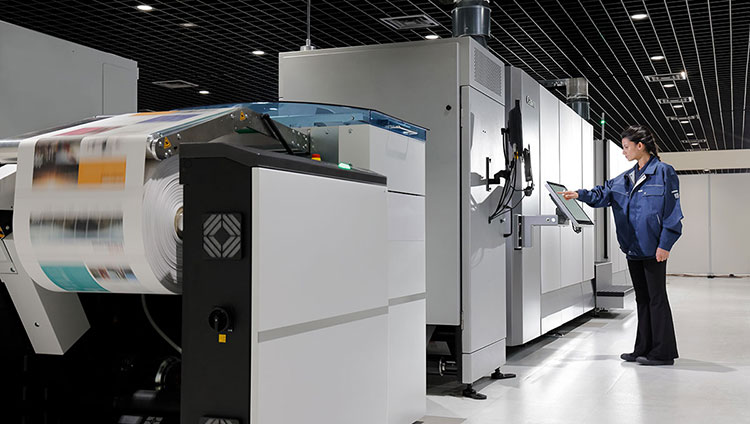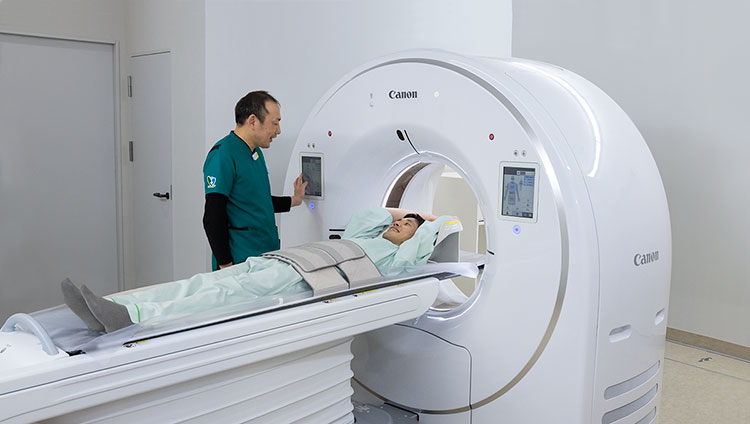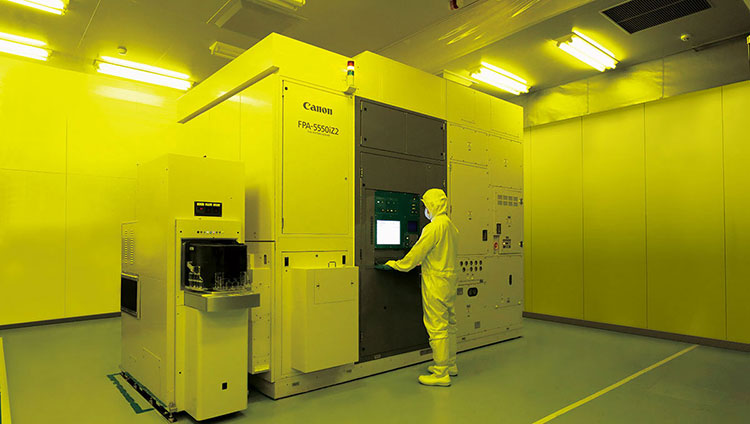Society realized by Medical Business
Diagnostic ultrasound systems allow
healthcare professionals to detect even subtle abnormalities
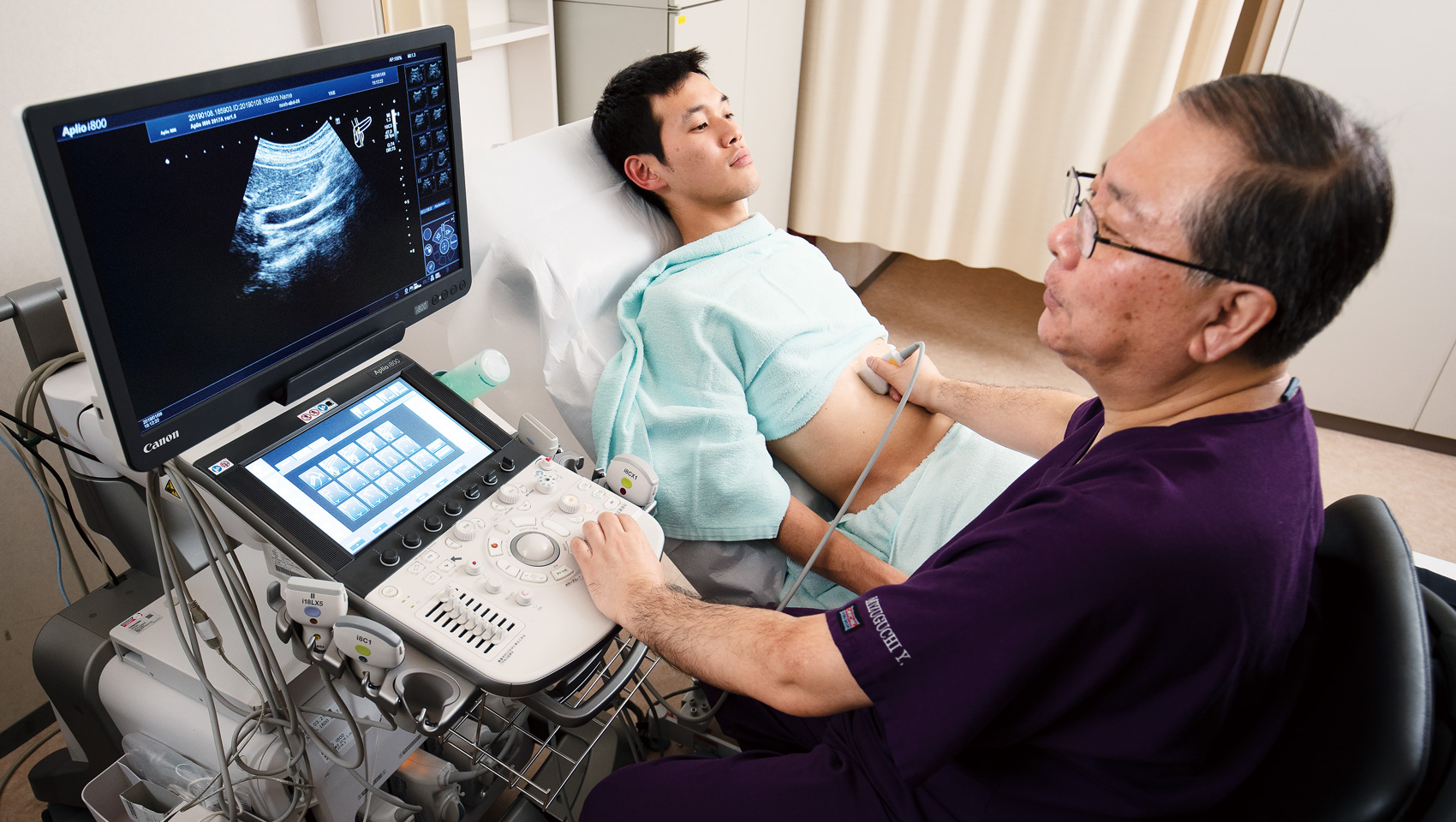
Sharper ultrasound images for even earlier detection of minute changes
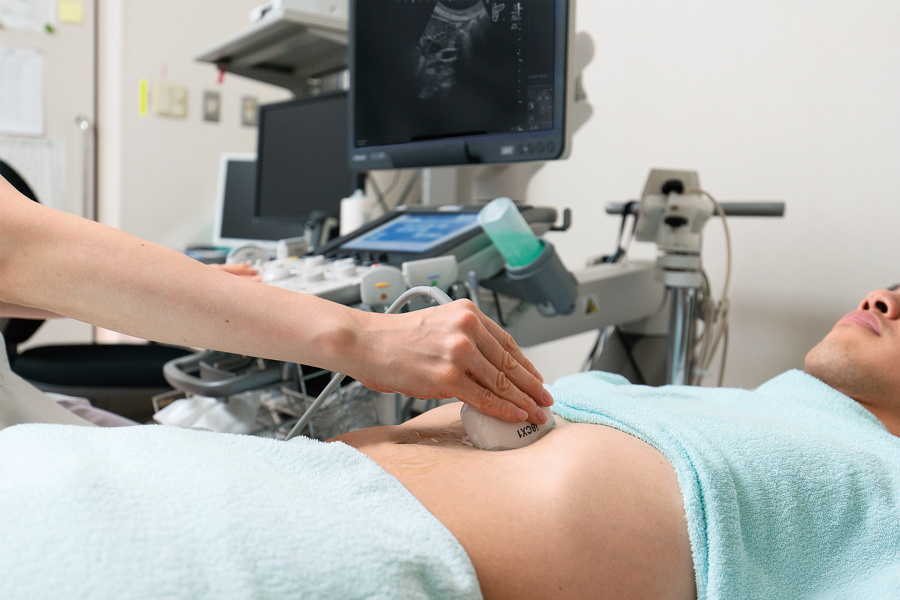
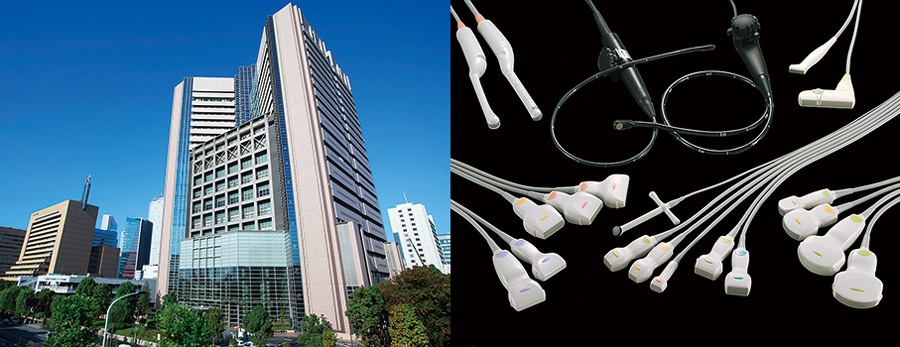
Japan's National Cancer Center Hospital, the country's preeminent hospital for cancer treatment, is active in the advancement of leading-edge cancer treatments, trains healthcare workers and, in conjunction with corporations and universities, conducts clinical research and trials for the development of next-generation treatment.
Patients from all across Japan with difficult-to-diagnose illnesses visit the National Cancer Center Hospital. Emphasizing patient welfare, the hospital chooses a diagnostic method suited to each person to attain the best possible test results in the shortest time. As diagnostic ultrasound systems are non-invasive and don't expose patients to radiation, there is no need for concern over side effects. These indispensable devices are used at every stage from diagnosis to post-treatment convalescence.
Canon Medical Systems' Aplio i-series is the main diagnostic ultrasound system used for examinations at the hospital. Doctors and technicians can select the ideal transducers and parameters for the body part or organ under examination in pursuit of impressive images that lead to more accurate diagnoses.
When developing diagnostic systems, Canon Medical undertakes joint research with various medical institutions, heeding their evaluations and advice in order to improve image quality. Today, the evolution of ultrasound image quality has even made possible the early detection of such diseases as pancreatic cancer, which is difficult to detect with CT and MRI. Canon Medical's diagnostic systems are driving the early detection and accurate treatment of cancer to higher levels of precision.
Society realized by Medical Business
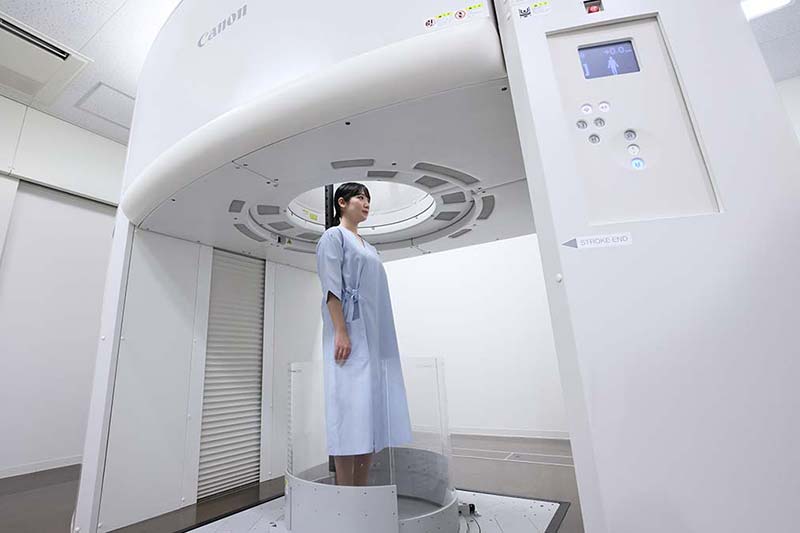
Keio University and Canon Medical Systems have developed Upright CT that may help identify undiagnosed pains occurring only under weight loading while standing and shorten the examination time.
LEARN MORE

Photon-counting CT, which generates greater detailed images with less image noise, is attracting attention as the next generation of CT. Canon will work together with medical institutions around the world to verify PCCT.
LEARN MORE

Joint development with medical facilities such as Fujita Health University Hospital, which has the largest number of hospital beds in Japan, realize practical use of super-high-resolution, deep-learning reconstruction technology and open up new possibilities for cardiac CT scanning.
LEARN MORE

These mobile medical trailer CT systems, equipped with high-spec CT systems that support diagnostics with high image quality and low radiation doses, are used around the world.
LEARN MORE
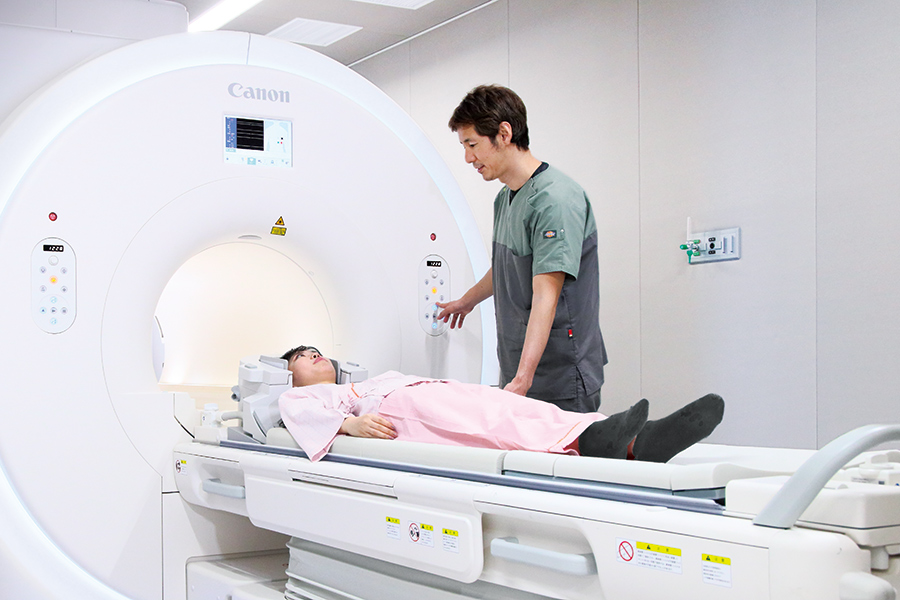
At Saitama City Hospital, which recently relocated to a new building, Canon's two MRIs greatly reduce the burden on patients thanks to a wide examination space, extremely quiet operation, and high-resolution CT imaging.
LEARN MORE

At the National Cancer Center Japan, the exposure-free diagnostic ultrasound system contributes to the early detection of cancer and the improvement of treatment accuracy.
LEARN MORE

